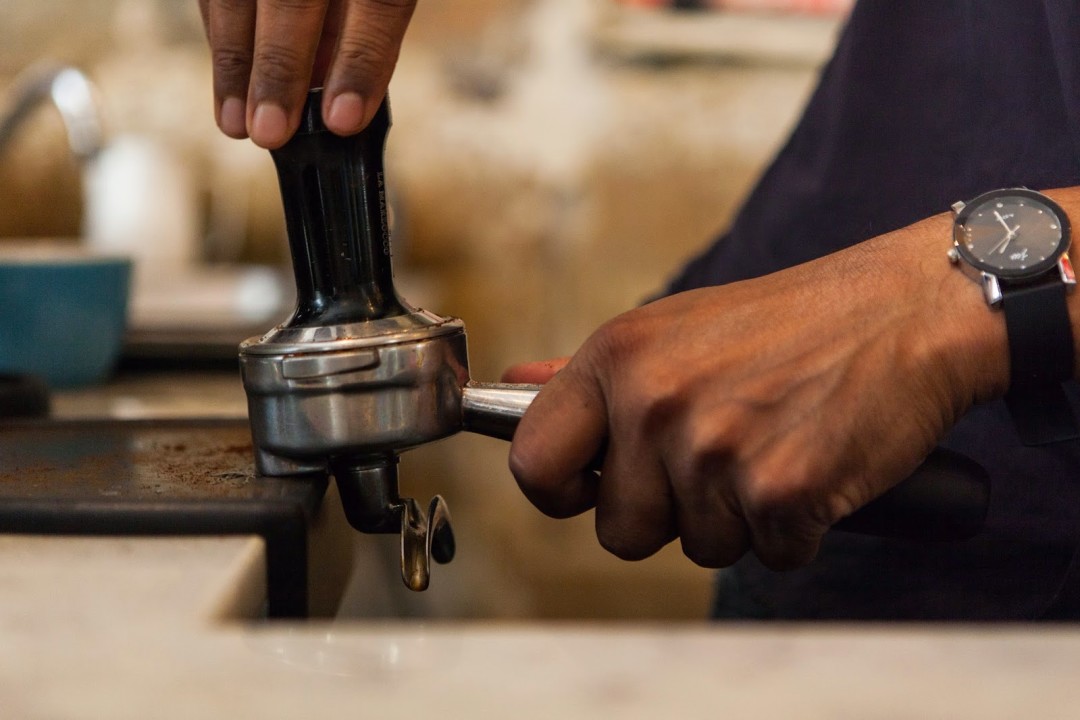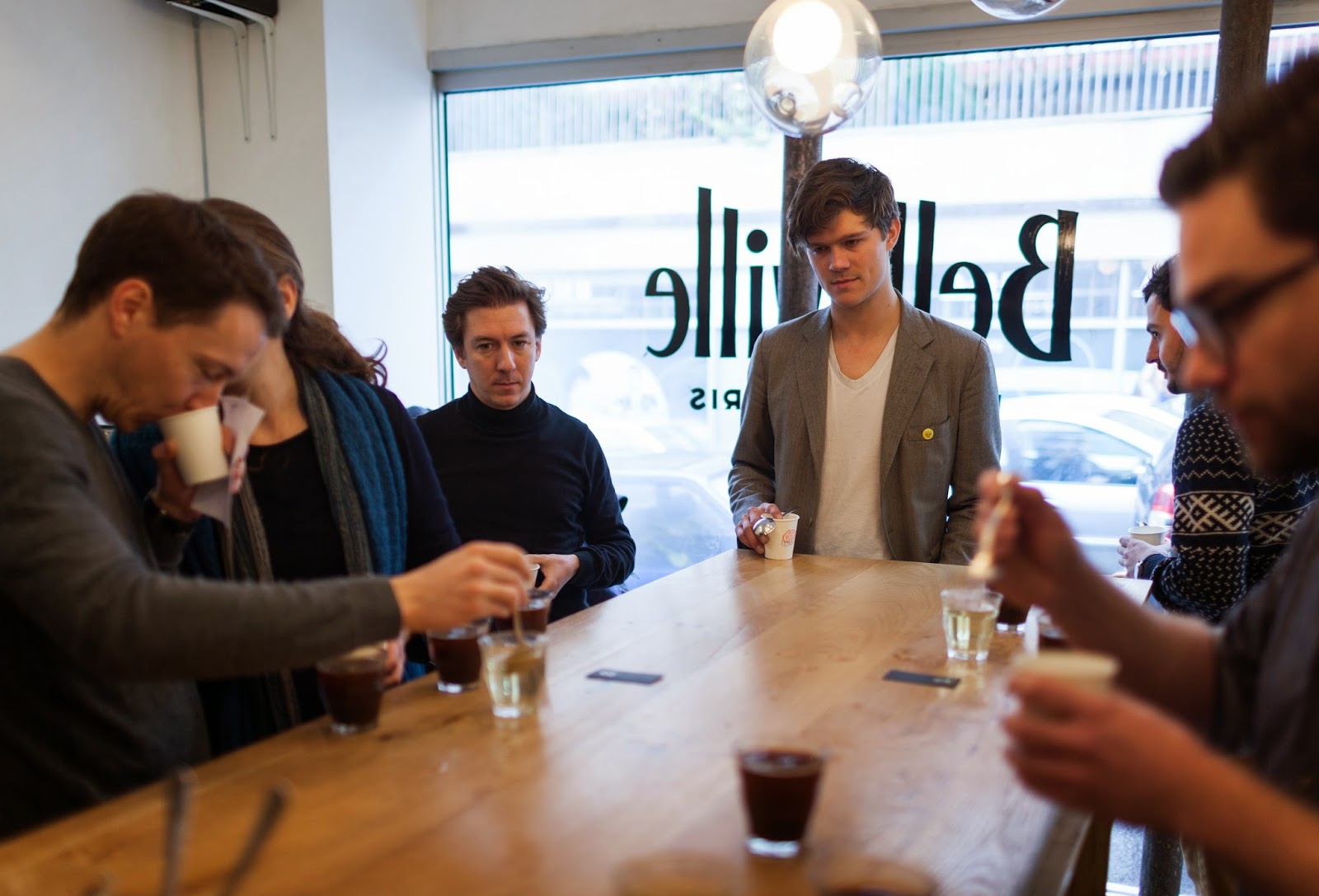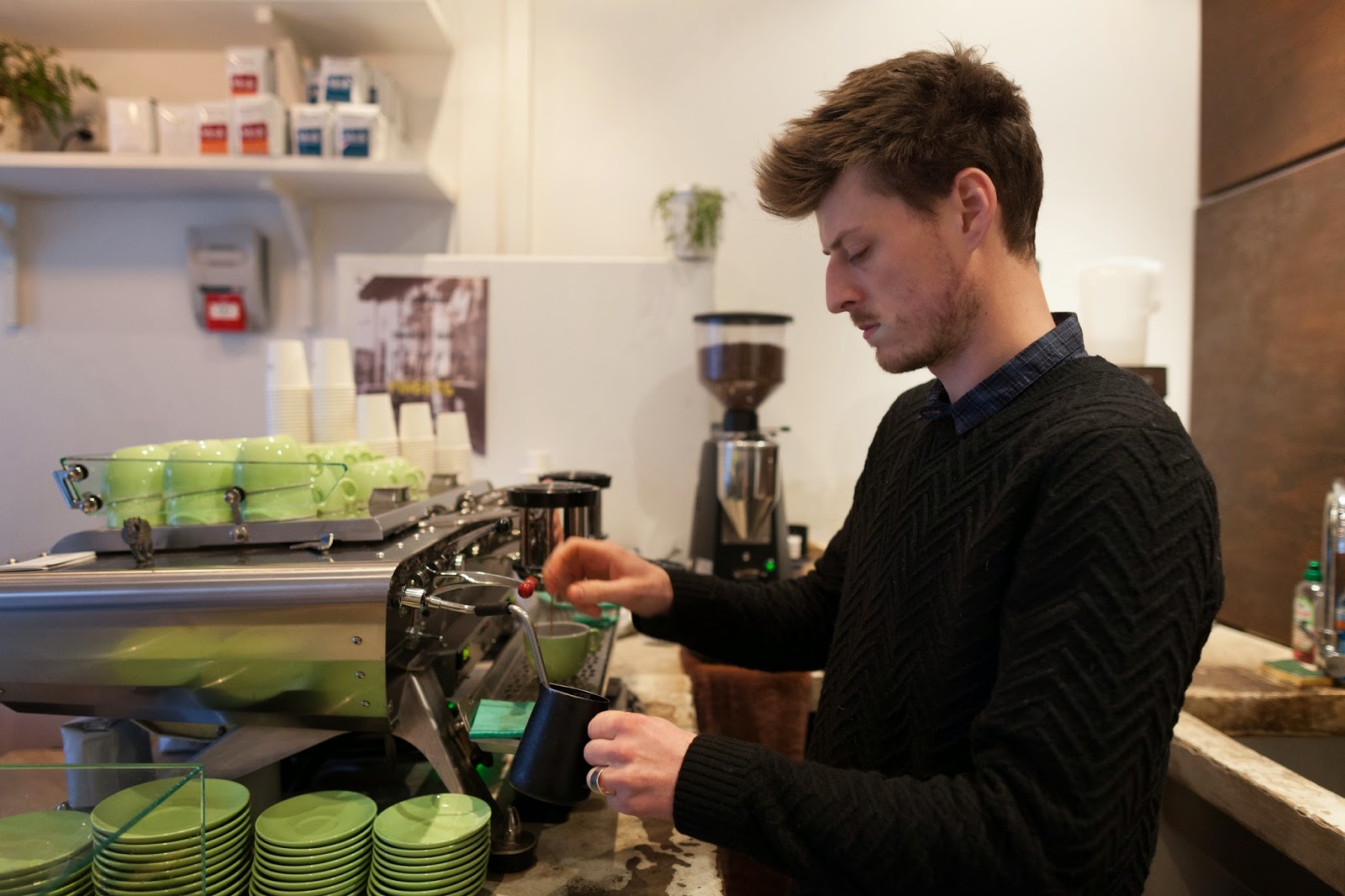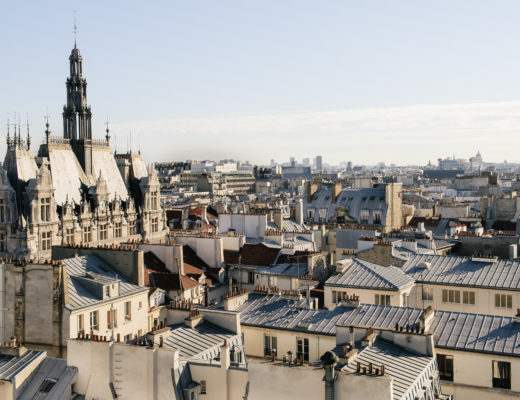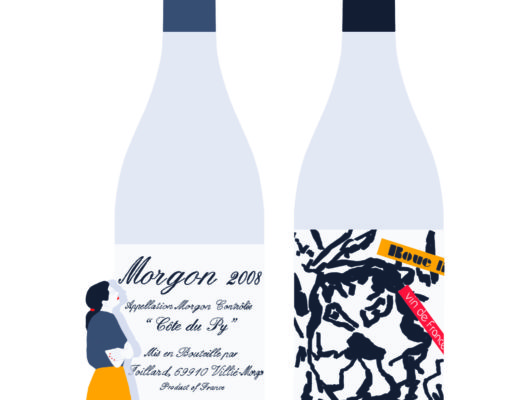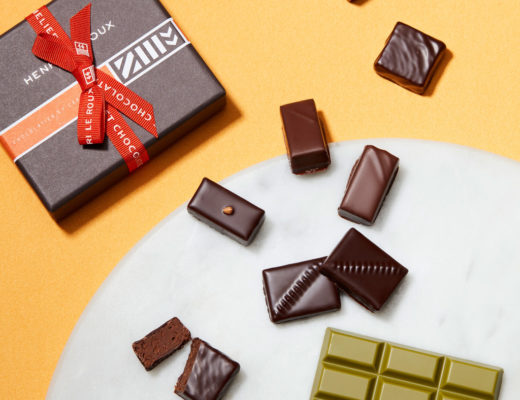The coffee tune in Paris has changed. In the last two years, coffee has evolved from much-maligned to much-adored by a burgeoning set of specialty coffee aficionados, celebrated as much for the newfound awareness the third wave movement inspired as for the talents pioneering it. With new openings every few months, the market is rapidly maturing. But with greater choice comes a greater challenge for the coffee lover.
Given the growing democratization of artisanal coffee, particularly in Paris, almost anyone with business acumen and an ability to ape the coffee shop pre-requisites – colorful Inker ceramic mugs, La Marzocco machinery, minimalist, distressed wood interiors, artisanal cakes and tattooed baristas – can presumably open and run a shop. With those characteristics firmly in place, the assumption among many is that the product must be quality.
Lest you end up at spots trafficking in trend rather than technique, I sat down with the city’s top brass after hours to find out what indicators you can look for to discern a mediocre roast from an excellent one, no matter what kind of cup it’s served in.
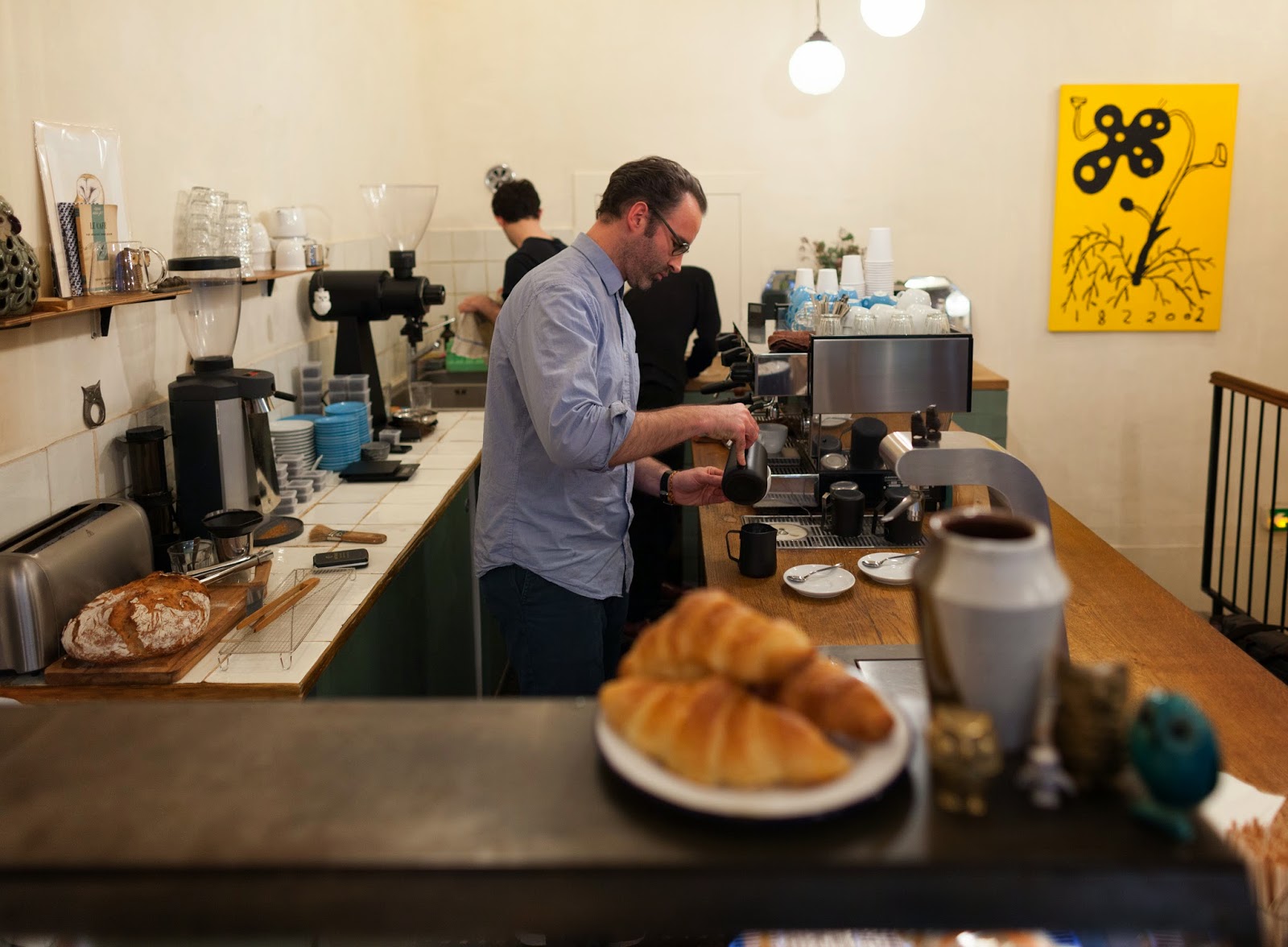
RESEARCH FIRST
Do your homework to suss out the spots that have been consistently well received. For David Flynn, co-owner of Belleville Brûlerie, one of the city’s leading roasters, one of the best ways is by asking the staff at your favorite coffee shop back at home what they recommend. “The specialty coffee scene worldwide remains close-knit. Baristas are often reading up on what’s happening in other places and will most likely be more informed than a web search”, he explains. Then once you’ve found a place in Paris you enjoy, he recommends asking the staff for their personal favorites.
Beyond firsthand feedback, another guidepost for your research should be the types of drinks offered. David specifically calls out filter coffee as a reliable indicator of a café’s seriousness. “It’s been an integral part of the specialty scene for quite a while now and almost every specialty shop serves some kind of filter coffee. Outside of specialty shops however, filter coffee is almost nonexistent. While its popularity here is growing very rapidly, it has yet to trickle down to the shops that are ‘just pretending’. If you see filter coffee on the menu, there’s a good chance you’ve found yourself in a good shop”.
The last tip: ask the roasters for their advice as well. “While there are a lot of shops of varying quality opening all the time in Paris, there are still only a few specialty roasters. Check out their websites, send them an email or see what shops they’re talking about on social media. Roasters want to highlight the shops that are doing the best job with their coffee”, explains David.
ASK THE RIGHT QUESTIONS
The entire panel of experts agreed, it doesn’t require being a ‘coffee geek’ to ascertain whether the barista making your drink has a deep understanding of the craft. A few key questions can reveal wonders. Chris Nielson, co-owner of Fondation Café, recommends starting with quite simply ‘what are you serving?’ as one way to illustrate whether the person manning the bar knows the difference between the coffee’s origins and its roaster. “If someone can’t make that distinction or doesn’t seem to be taking responsibility for what they’re making, that’s a good indicator for me of their motivations. Either they’re serious about coffee – the actual product and searching for the best in every cup- or they’re more into the idea of having a café”.
Then, perhaps the most important move, is to put your choice in the hands of the barista. If they’re good, they will know how to guide you. “Ask what theyrecommend”, explains Nicolas Clerc, owner of three-year-old Télescope. “We taste our coffees all day long so we’re bound to have a preference. Also, coffee is seasonal so we will know which is the newest harvest and how best to serve it”.
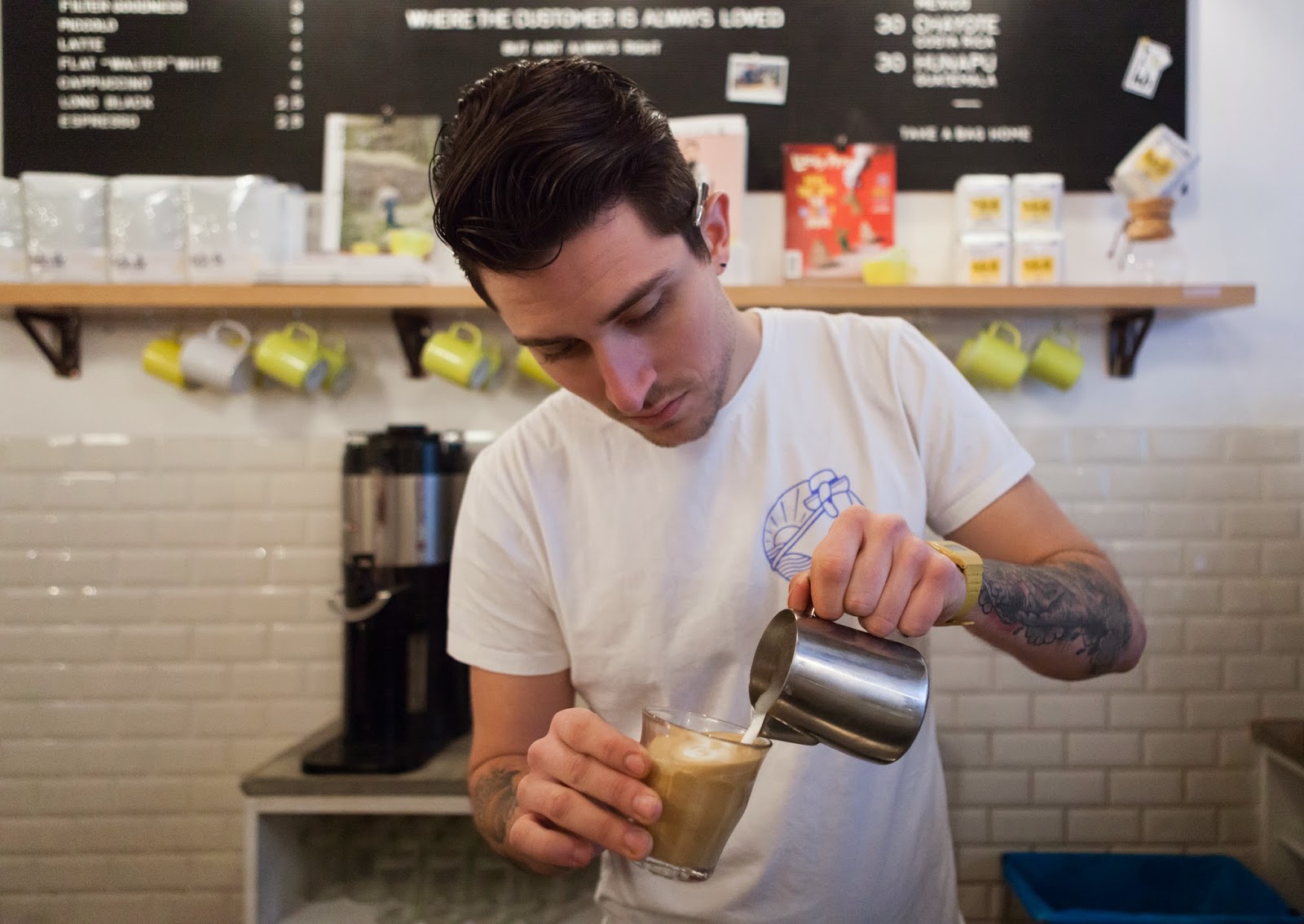
OBSERVE THE BARISTA
For Channa Galhenage of Loustic, having new, top of the line machinery isn’t the most crucial part of the equation. “You can have all the right gear and all the greatest beans, but the result comes down to the baristas and whether they are properly trained,” he says. There are a couple of ways to know. Nicolas Alary of HolyBelly suggests watching the barista make a drink or two first and pay attention to a few details. “Are they clean or is the workspace full of coffee and milk? When you watch them make a coffee, do they take the porta-filter out, tap the puck out and give it a good wipe? Do they flush the group before making the next coffee?” Other things to look for: clean steam wands, clean milk jugs, clean wipes called ‘chucks’. If you hadn’t guessed, bar cleanliness is part of baristaring 101 and absolutely a non-negotiable for serious shops. “If someone doesn’t know how to clean that machine”, adds Galhenage, “they’re not a barista.”
GO BEYOND AESTHETIC, FOCUS ON TASTE
For the average coffee drinker, it’s a challenge to know where to go for the best when most shops come with impressive machinery, baristas who have perfected the coffee vernacular and attractive, widely-Instagrammed spaces. “There are plenty of pretty walls in Paris. Don’t get distracted by design if you’re looking for good coffee”, cautions Nielson.
Whether you’re going for espresso or milk-based drinks, it’s ultimately a matter of taste. Sourness and saltiness are key indicators of under-extracted coffee, bitterness or dryness in the mouth often a marker of over-extraction. With lattes and flat whites, it’s about striking a harmonious flavor balance with perfectly textured milk (soft, smooth, not overly milky) and a well-pulled shot. “Places serving coffee, even the non-specialty shops, are getting very good at fooling you with aesthetics so you just need to bite the bullet, buy the coffee and taste it to know”, insists Alary. “When I went to NYC last summer, even I was duped! You hear about all these shops, there’s cool music, everyone looks like they’re having a great time and so it’s easy to assume it’s good. But until you try it, you really can’t know.”
And judging the taste is easier than you think, according to Clerc. “I’ve never met anyone who wasn’t able to tell the difference between a good and a bad espresso so this is a very good first step: taste it! How is it? If it tastes good, you really don’t need to know much else”. In other words, no need to be an expert to say, “This is damn good”.
Below, the barista’s shops and those they recommend:
Télescope, 5 rue Villedo, 75002
HolyBelly, 19 rue Lucien Sampaix, 75010
Fondation Café, 16 rue Dupetit-Thouars, 75003
Loustic, 40 rue Chapon, 75003
Ten Belles, 10 rue de la Grange aux Belles, 75010
Belleville Brûlerie, 10 rue de Pradier, 75019 (open to the public for tastings on Saturday mornings only)
Cream, 50 rue de Belleville, 75020
Honor, 54 rue du Faubourg Saint-Honoré, 75008
KB, 53 avenue Trudaine, 75009
All photos by Jesse Morgan.






